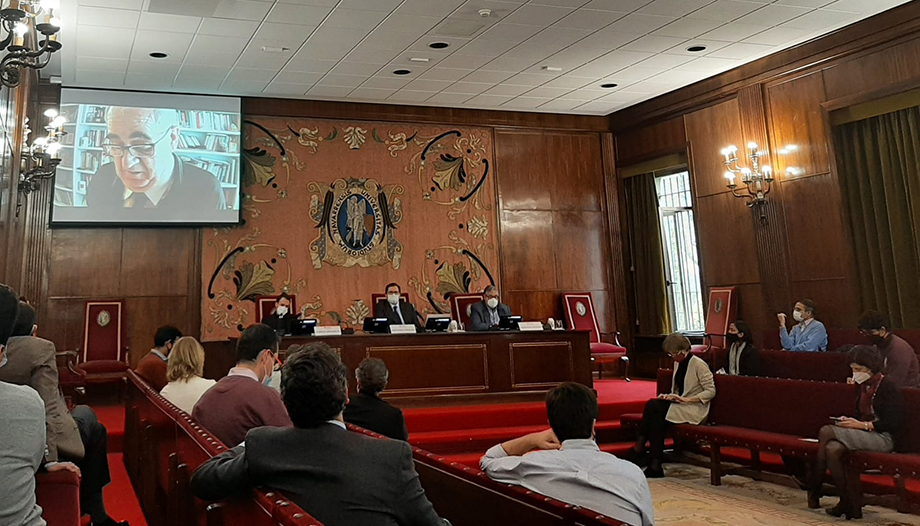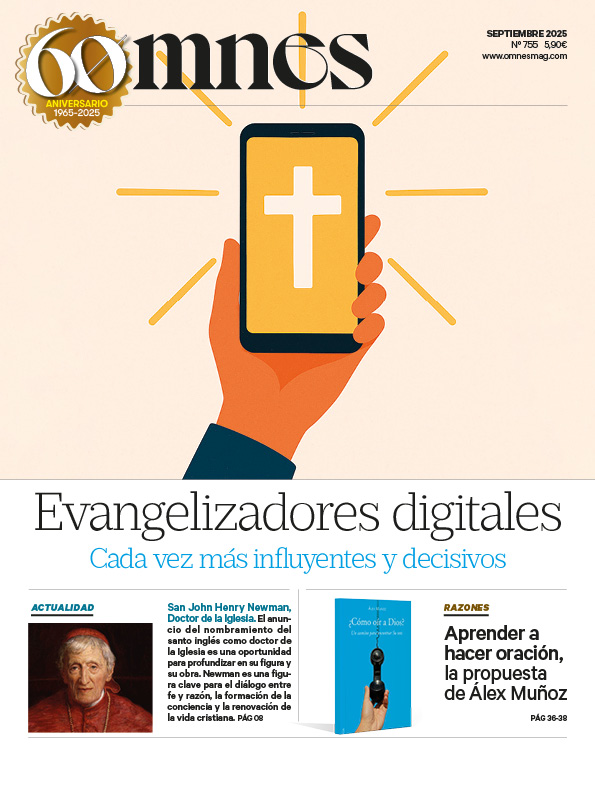This meeting, which was also followed virtually and especially addressed to university professors, once again highlighted the central importance of forming intellectuals with a Christian mentality, that is, overcoming the duality between a professed faith and the proper exercise of social and intellectual life.
This round table is preceded by an intense and rich debate that, since last November, intellectuals, journalists and academics have been having, through various digital media, about the presence of a so-called "Catholic intelligentsia" in the space of general debate.
A debate that especially calls for the role of universities, and even more so, universities of Christian inspiration, in this formation of Catholics. "with head and truly Catholic thinking"and which was also discussed a few days ago at a round table at the Francisco de Vitoria University.
The danger of the ideologization of faith
From a theological perspective, Miguel Brugarolasnoted that "We must keep in mind that God has endowed all human activity with a divine value, but human activity is not enough to attain knowledge of the divinity; Christ is needed, Therefore, to approach any subject as a Catholic requires a faith incarnated in one's own life and, therefore, in one's own reason.
Likewise, Brugarolas stressed that, by this same logic of the incarnation of God, "The way in which the Christian relates to the world is profoundly theological, he lives his relationship with God from his humanity, and therefore, his activity is Christian even if he does not do it from an official Catholic point of view".
All the participants agreed on the danger posed by the "ideologization of faith": "This postmodern society reduces the greatest things to banalities, so that they can be set aside, as happens with faith reduced to a simple ideology, stated Brugarolas himself.
For his part, the philosopher Juan Arana emphasized that by not cultivating faith and, above all, Christian and intellectual maturity and formation: "It may be that what is really in a precarious situation is our Christian identity and we are not living up to what society is asking of us.". He also wanted to emphasize that "intellectuality and Catholicism have universality in common as their own thing".
"We have fallen into an impoverishing dualism."
Juan Manuel de PradaThe President, for his part, referred to some of the key problems of this "disappearance" of the Catholic intelligentsia. "when someone is presented as a Catholic intellectual, this 'label' is almost a label, which creates a prior prejudice that everything that person affirms or defends is 'subjugated' to their being Catholic, as if faith did not belong to the realm of the rational"..
Another stumbling block, the writer pointed out, is a problem present in the daily lives of many Catholics: "we have fallen into dualism, separating faith from natural reasons and we have introduced ideological conflict into our activity and, what is more serious, into our Christian life".
"Our challenge"continued de Prada, "is to break this impoverishing and suffocating dualism and to recover Catholic thought as an inspirer of natural realities, capable of offering a novel reading of these realities that is necessary". For De Prada, "It is about proposing a vision of the world that integrates those realities that ideologies have appropriated separately".
The key is for Christians to have a Christian head and, to this end, in response to the doubts raised, the speakers agreed on the need to get rid of this ideologization of the faith. A position that avoids dialogue: "the more catholic we are, the less ideological we will be."Juan Manuel de Prada has even said, since, in the words of Brugarolas: "ideology is reason oriented to power and not to truth".
On the other hand, the need to generate a true Catholic culture that does not end up in a ghetto of comfort was highlighted, "avoid situations such as Catholic writers writing only for Catholics." and to propose the Christian vision as a light on all education, for example in the case of the University, not only as a specific subject: Christian thought should illuminate all areas of personal development of the human being.







